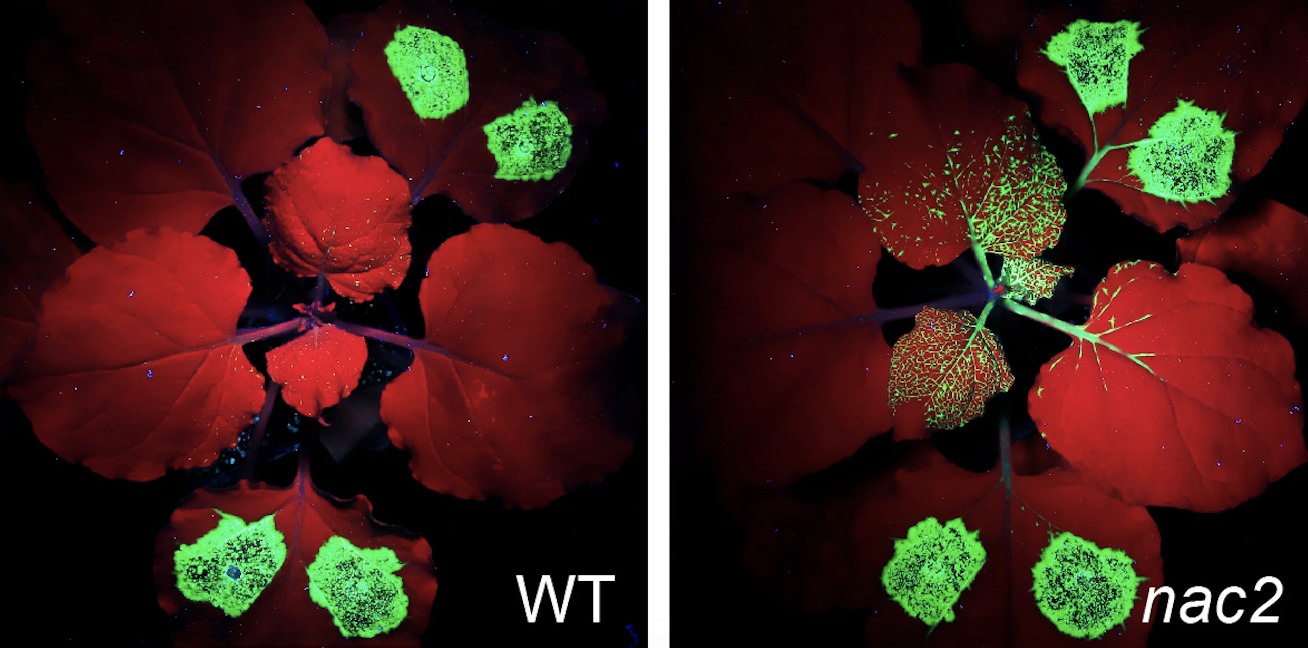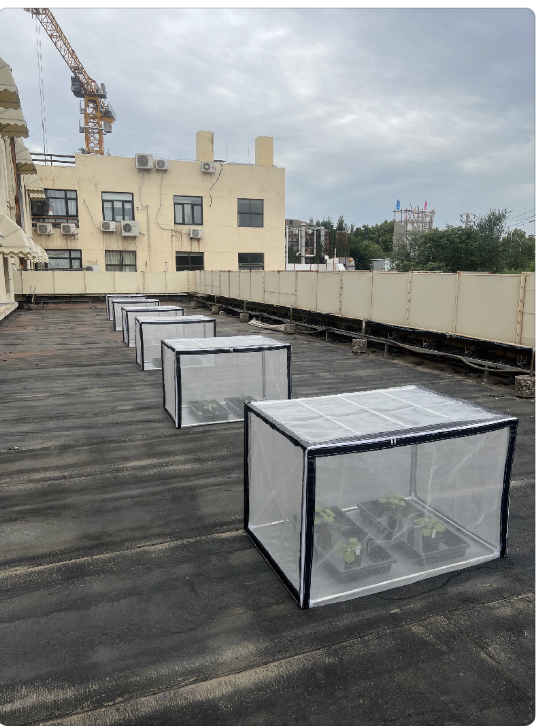A study reveals how plants send out alarm signals in response to insect infestations – a finding that might help research into pest-proof crops.
The mechanism behind airborne signals that plants use to alert each other to aphid attacks has been uncovered by Tsinghua University researchers — and the findings hint at new ways to engineer crops to defend them against pests.

A Tsinghua team traced the production of a gas warning other plants of aphid attack to a gene called NAC2. They also showed that plants that lack this gene are more susceptible to viruses. Here the scientists examined the green fluorescent protein (GFP) levels (green) in wild type (WT) plants and plants that lack NAC2, both of which were infected with GFP-tagged tobacco mosaic virus.
The biomolecular processes involved have puzzled scientists since the airborne defence was observed more than 40 years ago.
“Our study lays the ground-breaking work to develop novel bioinspired tools to defend plants against insect infestation and virus epidemics,” says Yule Liu, a plant scientist at Tsinghua University.
Messages on the breeze
The research, recently published in Nature , focuses on how some plants attacked by aphids release methyl salicylate gas, and how other plants sense and it mount their own pre-emptive defences.
Liu’s team looked at a relative of tobacco, called Nicotiana benthamiana. They traced the production of methyl salicylate in N. benthamiana to a gene called NAC2 and showed that plants that lack this gene are more attractive to aphids.
The scientists also identified a receptor in the plants called salicylic-acid-binding protein-2 (SABP2). It binds to and converts airborne methyl salicylate into salicylic acid, an important plant hormone that can regulate resistance to environmental stress.
The researchers found that salicylic acid can trigger a defence against aphids, even before plants are attacked by aphids themselves. They speculate that upon contact with methyl salicylate from neighbouring plants under attack, plants are able to raise a pre-emptive defence via this salicylic acid pathway.

Emitter and receiver tobacco plants were placed on trays at a distance of 30 cm apart. Aphids that were either virus-free or infected were added to some of the emitter plants. After three days, the receiver plants were taken out for further experiments.
Aphid attacks
In addition to sucking the nutrition from plants, aphids can also spread viruses that wreck crops. The researchers found that some aphid-transmitted viruses, such as cucumber mosaic virus and potato virus Y, have evolved a way to combat plant airborne defence. They do this by producing proteins that interfere with the NAC2 pathway, which reduces the synthesis and release of methyl salicylate.
Liu suggests that breeding plants that are resistant to these virus proteins, or using methyl salicylate in some other way, could help protect crops against aphids and aphid-transmitted diseases.
He adds that “methyl salicylate-mediated airborne defence is an environmentally friendly strategy to resist aphids,” making it an even more appealing approach.
The findings on N. benthamiana could also have broader implications for agricultural research, adds Liu. The researchers believe similar mechanisms could be found that help crops defend against fungi, bacteria, nematodes, whiteflies, leafhoppers and other pests. Once these signalling pathways are identified, they could be used to breed resistance against pests and pathogens.
Airborne signalling might even help plants coordinate their response to other environmental stresses, such as drought or excess heat, or even to normal growth conditions, adds Liu. This recent finding, he argues, could open a host of interesting possibilities.
Reference
Gong, Q., Wang, Y., He, L. Huang, F., Zhang, D. et al. Molecular basis of methyl-salicylate-mediated plant airborne defence Nature 622, 139–148 (2023) doi: 10.1038/s41586-023-06533-3
Editor: Guo Lili